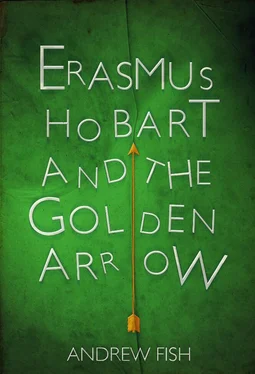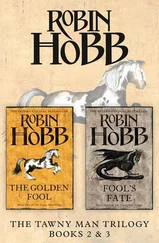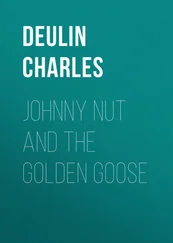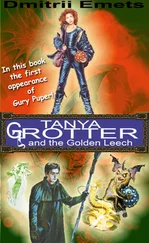1 ...6 7 8 10 11 12 ...15 ‘So where did all the robbing come from?’ asked Atkinson.
‘Possibly from when the stories were written down. By then, the feudal system had been devastated by the Black Death, labourers were being paid to farm, and King Edward the Third was expecting to live just us as well in a country where thirty per cent of the population had died in a few short years.
‘Robin Hood was the perfect tale to carry the sentiments of the people of that time, which might explain why King John is given such a poor portrayal. King Richard, by contrast, is portrayed as a great king even though he was hardly ever in the country.’
‘Sir,’ Harrison asked. ‘What’s the feudal system?’
‘I’m glad you asked that,’ Erasmus told him, ‘because that’s what we were supposed to be studying today. Now, if you’ll all turn to page one hundred and thirty in your textbooks, we’ll have a look at what life was like in the Middle Ages.’
There was a general rustling of pages and Erasmus drank deeply from his lukewarm tea. In a way he was grateful for the school play – he’d never have been able to get the pupils interested in the Barons’ Revolt and Magna Carta if they weren’t already thinking about the period. That was the trouble with the curriculum, history was expected to be a dry repetition of facts: there was no real understanding to go with it. If you could put the class into one of those reconstruction villages for a week, like a mediaeval version of Big Brother, now that might help them to understand what it was like.
He opened his own battered copy of the textbook to the relevant page – oh well, time to get on with the lesson. He noticed Barnstaple was leaning over towards Harrison’s desk, his eyes intent on the smaller boy’s sandwiches. Almost unconsciously, the teacher picked up his board rubber and hurled it across the room. The projectile hit the desk within an inch of Barnstaple’s hand and bounced off towards the back of the room; the sound of the impact made both boys jump and Barnstaple, already in an imbalanced position, fell from his chair with a crash. A ripple of laughter spread across the class as Barnstaple picked himself up, his face red with embarrassment and one hand clutching his forehead.
‘Now what’s the matter?’ Erasmus asked.
‘I hit my head,’ Barnstaple replied. Erasmus summoned the boy to his desk and inspected the purple swelling just above his eye. It was nothing serious but, if it meant he could rid the class of a disruptive influence for long enough to get the other boys settled into some work, then it was an opportunity worth taking.
‘Go and see the nurse,’ he instructed the boy, ‘and don’t be too long, you’ll be making the time up tomorrow evening.’
‘Yes, sir,’ said Barnstaple, thoroughly cowed, then made his way out of the classroom door. The other pupils watched him go then looked expectantly at their teacher.
‘Right,’ said Erasmus in a businesslike tone. ‘What we’re going to do today is to read the chapter on Magna Carta and then I want you to write a thousand words on what effect you think the document had on the common man. Heathfield, you can come here and distribute the exercise books.’
The ginger-haired boy made his way unhurriedly to the front of the class and took the pile of books from his teacher. Erasmus watched as each child accepted his book and turned to see what mark they had received for their homework. Atkinson was staring wistfully into the corner of the room and Erasmus followed his gaze, which was trained somewhere just above his confiscated bow.
‘We’ll never know, will we sir?’ Atkinson asked.
‘Know what?’
‘Whether Robin Hood really existed.’
‘Perhaps we will one day,’ said Erasmus and he shot a glance at the equations, just visible at the top of the board. ‘Perhaps we will.’
Chapter Four Contents Title Page ERASMUS HOBART and the GOLDEN ARROW Dedication Chapter One Chapter Two Chapter Three Chapter Four Chapter Five Chapter Six Chapter Seven Chapter Eight Chapter Nine Chapter Ten Chapter Eleven Chapter Twelve Chapter Thirteen Chapter Fourteen Chapter Fifteen Chapter Sixteen Chapter Seventeen Chapter Eighteen Chapter Nineteen Chapter Twenty Chapter Twenty-one Chapter Twenty-two Chapter Twenty-three Epilogue About the Author Credits Copyright About Authonomy About the Publisher Конец ознакомительного фрагмента. Текст предоставлен ООО «ЛитРес». Прочитайте эту книгу целиком, купив полную легальную версию на ЛитРес. Безопасно оплатить книгу можно банковской картой Visa, MasterCard, Maestro, со счета мобильного телефона, с платежного терминала, в салоне МТС или Связной, через PayPal, WebMoney, Яндекс.Деньги, QIWI Кошелек, бонусными картами или другим удобным Вам способом.
The end of the school day came, as it always did, as something of a relief. Despite having a passion for teaching, Erasmus always felt the school day was at least half an hour too long and that the hours of eight-thirty until four o’clock had been arrived at with more consideration to the children’s parents than to the children themselves. He retrieved his board rubber from the back of the room for the third time that day, then sat down at his desk and finished his mug of tea, before rolling the blackboard round to the squiggles that had so confused Clarence the previous night.
Ciphered in the impenetrable scrawl was the key to time, an equation so elegant it was almost a work of art, yet so simple it should scarcely have taxed a remedial student and yet – and yet – it was he, Erasmus Hobart, who had discovered that equation, who had realised it could be applied to create a machine that could travel in what had once been naively cast as the fourth dimension. There, described in a thin layer of chalk dust, was a summation of the quantum nature of time, a description of how all times were superposed in one space and how, far from accepting the universe as observed, a traveller could spin the quantum universe until he had selected the time at which he wished to observe it. The full ramifications of interacting with a different quantum state of the universe weren’t entirely certain, but then nothing was when you were dealing with quantum physics.
Erasmus adjusted a couple of figures based on the voyage of the night before, then tossed the board rubber in his hand as he basked in the glory of his achievement.
Where should he go tonight? Should he try to solve some great mystery, like what exactly happened on the Marie Celeste, or try to meet one of history’s great statesmen for an interview? Perhaps, he considered, he could try to find the truth of the Robin Hood legend. It was certainly an interesting proposition.
He pocketed the board rubber and picked up his mediaeval costume, which he had washed at home the previous night. Then, mindful of Clarence’s intrusion after his previous outing, he locked the door to the corridor before unlocking the storeroom. Inside the small room, the privy stood, silent and expectant. Erasmus ignored it for the moment and turned his attention to the wardrobes, opening the door to the first and revealing a rack of clothing, with plastic hangings dividing it into sections. Each section was labelled with a range of dates for the era to which the clothes belonged, with sections like the 1500s, where fashion had changed on an almost weekly basis, being contrasted with those of earlier centuries, where advances in clothing had been seen as secondary to the continual struggle to survive.
Erasmus hung his clean clothing in the 1000s section, then rifled through the other clothes in the same era, looking for something more likely to blend in with forest surroundings. He finally settled on a brown tunic with matching cloak and trousers, which he complemented with a leather belt, a pouch and a pair of calfskin thigh boots.
Читать дальше











